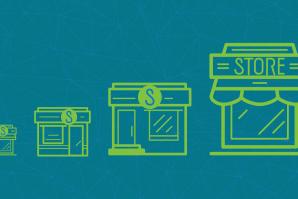\ ˈin-ˌflü-ən(t)-sər, n.
A person who has the power to influence many people, as through social media or traditional media
You’ve likely been on the receiving end of religious evangelism at one point in your life — a midday knock on your front door, or a pamphlet tucked in your door. And you likely already know what brand evangelism is (think Cindy Crawford drinking a bottle of Pepsi in the now-famous Super Bowl television ad in 1992).
But in recent years, with the rise of social networking, the business world has embraced a modern form of evangelism, making the word synonymous with an entirely new brand of evangelist: the influencer.
The Buzz
The celebrity endorsements of yore have been supplemented by paid and in-kind influencer recommendations made to an individual’s dedicated social media following. No longer do brands need to spend hundreds of thousands of dollars on prime ad placements; they just need a product endorsement posted from a Kardashian Instagram account to garner similar, if not stronger, results.
Sacramento resident Kachet Jackson-Henderson is a longtime blogger who recently founded The Blog Bloc, which helps bloggers build their business around content and influence. She describes an influencer as a “leader and an advocate, a person of great wisdom or insight within a certain area,” adding that, when it comes to these evangelists, “sometimes, it only takes one person to start the revolution.”
But influencer marketing can be problematic for consumers who may not recognize what’s really happening behind the scenes of an Instagram photo. The Federal Trade Commission has started to crack down on this lack of transparency, and in April sent letters to more than 90 celebrities, athletes and other influencers reminding them to clearly disclose their relationships to the brands they hawk on social media.
The Word
“Working with influencers gives a word-of-mouth type of recommendation on a macro level. People become part of an influencer’s life by following them,” Jackson-Henderson says. “They keep up with happenings, family and the like, so there is a great reward to being woven into that fabric.”
Related: Startup of the Month – NannyMe
There is certainly a case to be made for what is essentially (paid) positive word of mouth. But businesses looking to deftly leverage influencers need to remember that the strategy’s efficacy stems from consumer trust — and that trust hinges on authenticity. The most affordable way to leverage influence is to build a solid base of satisfied customers, says Jake Randle, the co-founder of Sacramento-based childcare app NannyMe.
“We are passionate about our mission, but are even more excited about the true value our customers have realized because of our service,” Randle says. “Our customers have spread the word of NannyMe and have found a lot of functionality in what we deliver.”
In the case of influencers — whether through paid marketing or good old-fashioned word of mouth — brands need to be authentic, transparent and actually provide a quality product or service to truly become influential. Otherwise, they risk jeopardizing their reputation.
Recommended For You

Buzzwords: Pain Point
A problem thought to be facing a person or group of people that entrepreneurs are looking to solve through goods and/or services.

Buzzwords: Scalable
An ability to invest time and energy in systems that allow small businesses to grow while still handling increased demands.



